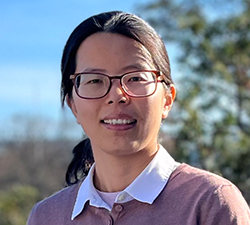Honghong Li joined GEDB as a postdoctoral researcher in November 2022 and works within the Global Health and Biosphere Stewardship theme. Her research focuses on exploring the impact of biodiversity on human health and wellbeing across various fields, including agriculture and forestry, environmental microbiology, urban design, and biosphere health.
As a trained microbial ecologist and interdisciplinary scholar, her previous research has examined the role of soil microorganisms in sustainable nutrient management and climate change mitigation. More recently, her work has centred on the relationship between biodiversity and human health in the context of multiple and interlinked crises with the critical question: “Will biodiversity loss make humanity sicker?”
At GEDB, she leads the systematic mapping of existing evidence on the impacts of biodiversity on human health and well-being at different scales, with an extra focus on unifying existing hypotheses and theories of human-nature relationships. Her methodology incorporates evidence synthesis, machine learning, statistics, and computation, integrating theories and insights from ecology, microbiology, and sustainability science. By examining the relationship between biodiversity and human health from various perspectives, she aims to provide a comprehensive overview of the current state of knowledge, supporting researchers and policymakers in prioritizing future research areas and developing evidence-based strategies to incorporate the value of nature into sustainable management practices.
She earned her PhD in Environmental Microbiology from the University of Helsinki in 2022. Before joining GEDB, she worked as a research scientist at the Natural Resources Institute Finland (Luke). Additionally, she is interested in teaching and advocates for women's participation in science, technology, engineering, and mathematics (STEM).

